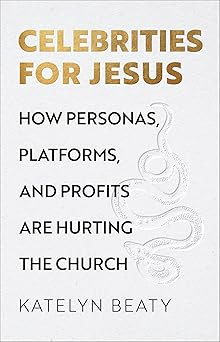What if people are spiritual guides, not authorities?
If you keep up with the news, you’re familiar with the near-constant stream of articles about church abuse scandals in the United States.
Articles exposing church leaders’ abuse have become so frequent that even USA Today suggested evangelicals ought to shift their focus from politics to sorting out how to the church can stop covering up abuse and protect victims. Yikes.
All too often, we see pastors and leaders of para-church organizations using their status for personal gain. A recent article by Christianity Today referenced this phenomenon as “abuse of influence.”
While the details and people affected change, the primary problem in these stories remains: leaders leveraging the perception of having spiritual authority to manipulate, influence, and abuse others.
It’s one thing to have church leaders sharing their knowledge of God and scripture to encourage others. It’s another thing entirely for leaders to insist on having spiritual authority over congregants.
After all, when someone insists on their authority over us—and uses it to direct the way we think, feel, or act—it’s abuse.
To make matters worse, many of these abusers have power to leverage because the church has deemed them as being spiritual authorities—and congregants fear that in saying no to their demands, they’re disrespecting God in the process.
Now, using the idea of being God’s mouthpiece to manipulate others is by no means true for every church or every pastor. There are many who genuinely love God and care for people.
However, even in these cases, I’d argue that while we can learn from others, we don’t need them to tell us what to do on behalf of God.
This is not to say we can’t seek knowledge from those with education and expertise. We can absolutely look to trusted voices we respect for wisdom.
The difference is that we don’t need to be under the authority of others to glean from their perspectives.
We have been given the power of the Holy Spirit who lives within us, guiding us and offering us discernment (Acts 1). This is our ultimate spiritual authority.
Seeing authors, pastors, and church leaders as guides rather than authorities may seem radical. However, the way of Jesus has always been to subvert the culture and promote the flourishing of people.
In ancient Roman society—a culture very much oriented around power, status, and control—Jesus offered us a new way.
So, in our power-and-status-obsessed culture, may we see God’s people laying down the need to control others and instead pointing us to the One true and trustworthy spiritual authority.
September Book Recommendation:
In Celebrities for Jesus, journalist Katelyn Beaty explores the unique phenomenon of “Christian celebrities”—and how a faith valuing humility can become so contorted when the focus shifts to following shiny people. We can be encouraged that while fame and influence have become tightly linked to the American church, they don’t have to be inextricably tied to following Jesus.
September Blog Preview:
As a follow-up to today’s conversation, this month’s blog will explore practical ways to seek out wisdom, knowledge, and spiritual guidance while keeping the Holy Spirit (rather than people) as our spiritual authority. To receive the post straight to your inbox, you can subscribe here.






